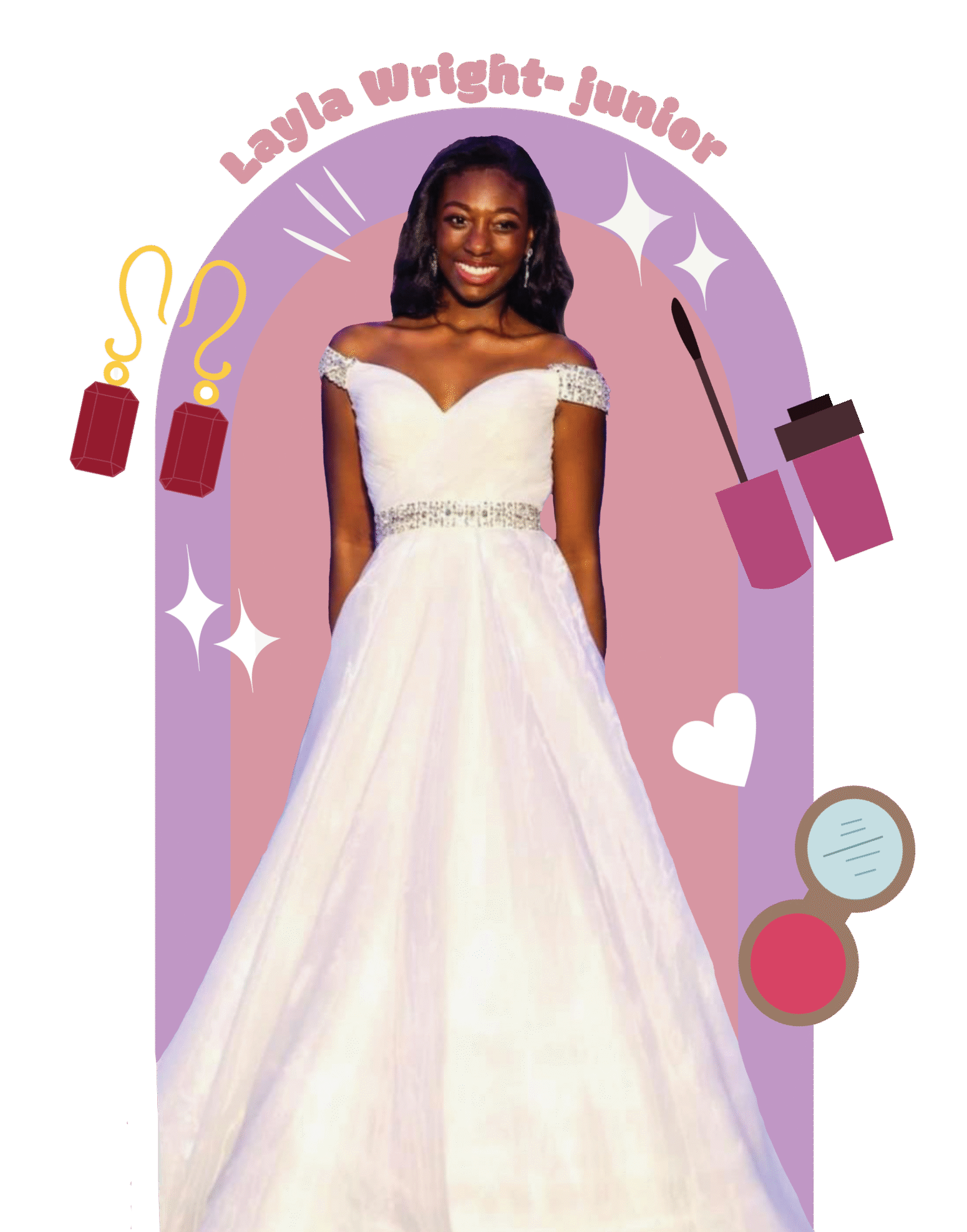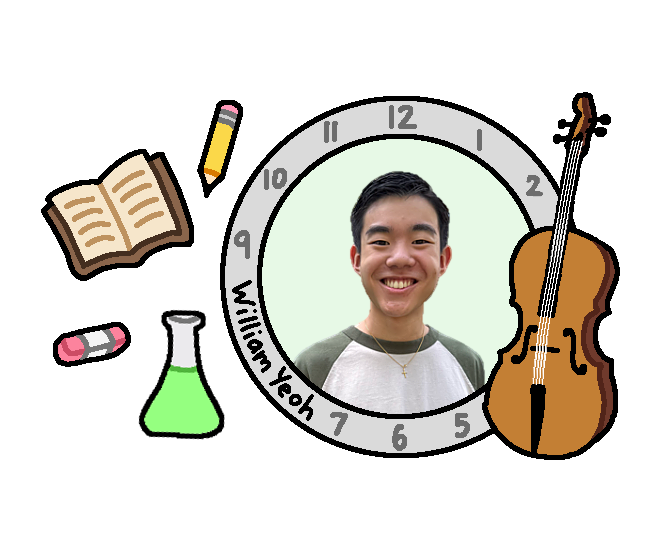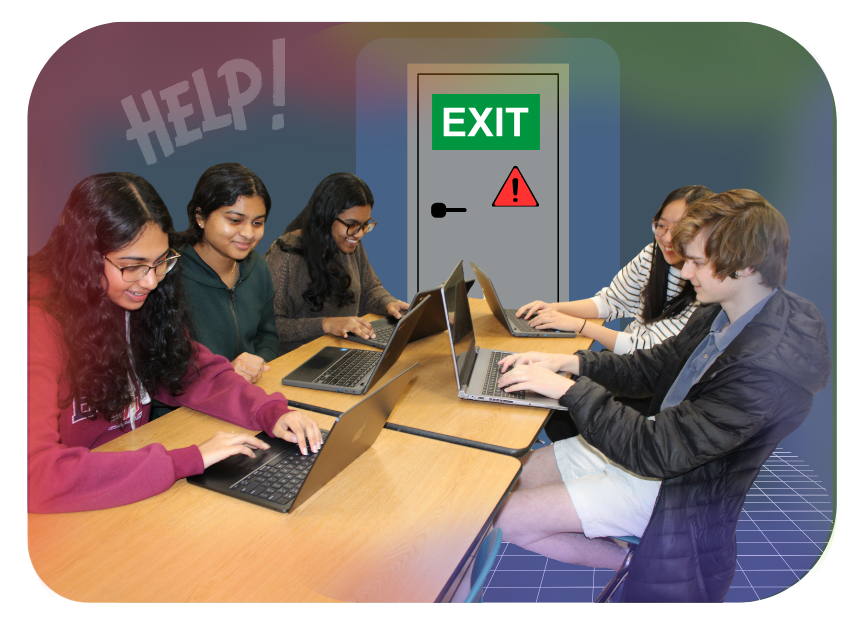Michelle Zuo | The Chronicle
“Beauty is in the eye of the beholder,” and for Mason High School (MHS) junior, Layla Wright, that beauty goes beyond crowns and sashes. As a former American Miss Junior Teen Ohio, pageantry is her platform for leadership development, inclusion and personal growth.
Wright began competing in pageants at 10 years old. Before she moved to Ohio in seventh grade, she participated in pageants, including the East Coast USA Pageant in New Jersey. Wright’s enthusiasm for pageantry stemmed from her childhood modeling background, which gave her the confidence to get on stage.
“I started at a fashion studio when I was eight years old,” Wright said. “I fell in love with the cameras, and my parents [thought I would] be perfect for modeling.”
When Wright transitioned into pageantry, she began working with different pageant coaches and developing her singing to perform as her talent during competitions. Meeting and learning about new people in pageants has also allowed her to discover a sense of community.
“My favorite part [of pageants] is meeting new people and seeing how different [all of the competitors] are and how we come together as a community,” Wright said. “At every pageant, they [the organizers] would always say kindness is the ultimate crown, which I think is the best way to put it.”
Wright has participated in both Glitz and Natural style pageants. Glitz pageants focus on elaborate costumes, hair and full makeup. Natural pageants encourage minimal modifications and tend to emphasize natural beauty and personality. Wright prefers natural pageants because of the different judging methods.
“[At Glitz pageants] I got judged too much on the way I looked more than my personality,” Wright said. “I was given a lot of low scores, but when I started doing more natural pageants, I felt like the judges saw me for who I really am and I started to get better.”
Through Wright’s involvement in natural pageants, she has also been able to embrace her identity as a pageant participant on the autism spectrum. The National Institute of Mental Health defined Autism Spectrum Disorder (ASD) as a complex neurological and developmental condition that affects how individuals socially interact, learn and communicate. The spectrum represents the range of symptoms that can vary depending on the individual.
“What I have is [informally] called high-functioning autism,” Wright said. “For me, it affects my communication. When I try to get words out, I stutter or do little stimming things. [Sometimes] I stomp my feet or do something with my hands, and a huge part of it is that my brain just works faster than I’m trying to process.”

Graphic by Medha Shinde
Wright found out she had autism when she had already been competing in pageants for years. In seventh grade, her parents told her about the diagnosis. This realization changed her approach to competitions, and she finally felt that she could embrace her true potential on stage.
“My parents knew my whole life that I had high-functioning autism,” Wright said. “Growing up, I used to stim a lot while I talked. It has calmed down a little bit since I’ve matured more, but there are times when I just can’t control it. [When I received the news] I was shocked for a few minutes, but at the same time, the light bulb finally turned on and it made sense.”
Understanding her diagnosis has helped Wright recognize the challenges she faces with communication. These have shaped her pageant journey as she interacts with new people and partakes in on-stage interviews.
“I get really nervous and start fidgeting before I start talking to contestants,” Wright said. “There are times when I would try not to stutter too much [and] think that I’m communicating just like them. But in my head, I’m like, ‘how do people talk without stuttering?’”
Outside of pageantry, Wright was originally hesitant about sharing her identity with autism. Pageants, however, have empowered her to see and represent autism through a new perspective.
“I used to feel uncomfortable sharing it [autism] because people I had been friends with growing up [also] didn’t know that I was autistic,” Wright said. “Now I [see] autism as a strength more than a weakness because it shows that I’m unique and I shouldn’t put too much pressure on pretending.”
Wright’s view on autism has also led to her creating “Autism Looks Like Me” (ALLM), her Teen Ohio Captivating program. The Miss Teen Captivating pageant focuses on ambassadors who represent their programs in their communities through leadership. Miss Teen Captivating chose Wright because of her program’s focus on spreading awareness and inspiring others.
“It’s a platform to help kids understand that [autism] is not a sickness,” Wright said. “[The program communicates that] there’s nothing wrong with you, [that] autism has different looks and levels and it’s okay to genuinely be who you are.”
Beyond pageants, Wright uses her Teen Captivating platform to inform others about autism through presentations, donations and events. Wright wants to continue encouraging others to embrace their identities on and off the pageant stage.
“Not a lot of people [with autism] do pageants [so] not many people talk about autism during pageants,” Wright said. “I’m not saying they have to, but that’s the most unique thing that I like doing. When it comes to pageants and autism, I feel like that’s something that we have to be aware of [since] it’s a huge part of people on the spectrum.”
Although the creation of Autism Looks Like Me was based on Wright’s experiences, Wright believes that she has also strived to learn and spread awareness about other kinds of autism.
“I mainly follow people [on social media] who are nonverbal and [see] how they would learn different ways to try to communicate,” Wright said. “A lot of people think autism [always] looks like that and don’t realize that there are different kinds. I may not be nonverbal, but it’s interesting to see, and I feel it’s something important for me to look at since I’m holding the platform of autism awareness.”
In the future, Wright plans on competing in more pageants while continuing to expand and grow her platform. Using what she’s learned from her platform and pageantry, Wright encourages others to contribute to their communities despite the challenges that come with it.
“Don’t try too hard to fit in with a crowd if you were born to stand out,” Wright said. “Just be the way you are and don’t let anybody change who you are, [because] if you put your mind to it, you can do anything you want.”






